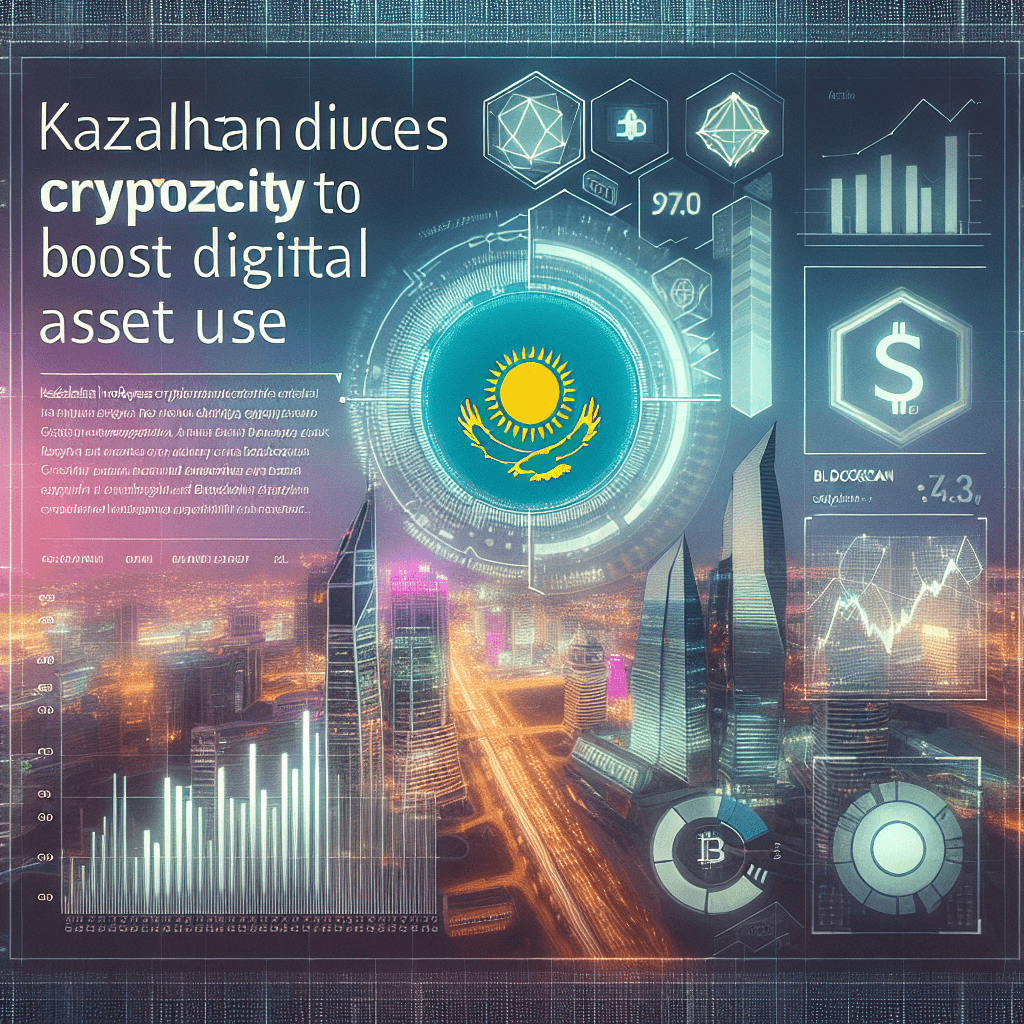Kazakhstan Introduces CryptoCity to Boost Digital Asset Use

Overview
In a strategic move to position itself at the forefront of blockchain innovation, President Kassym-Jomart Tokayev announced the creation of “CryptoCity,” a dedicated pilot zone designed to foster the adoption of digital assets and usher in a new era of crypto-enabled payments. The initiative aims to establish a regulatory sandbox that balances innovation with robust compliance, enabling both domestic and international firms to test use cases under a tailored legal framework.
Regulatory Sandbox Framework
CryptoCity will operate under the auspices of Kazakhstan’s Special Economic Zone (SEZ) legislation, enhanced by bespoke rules for digital asset service providers. Key elements include:
- Licensing Tiers: A multi-level licensing system distinguishing between custodial services, exchanges, wallet providers and token issuers.
- AML/KYC Standards: Alignment with Financial Action Task Force (FATF) Travel Rule requirements, incorporating on-chain transaction monitoring and mandatory customer identity verification.
- Data Localization: Obligations for service providers to store transactional data within Kazakhstan, ensuring supervisory access for the National Bank and Astana Financial Services Authority (AFSA).
- Smart Contract Audits: Mandatory third-party security reviews for DeFi protocols and token issuance platforms operating within the sandbox.
Technical Infrastructure and Energy Considerations
Kazakhstan’s abundant and low-cost energy resources, predominantly from natural gas and an expanding renewables sector, will power CryptoCity’s high-performance computing infrastructure. The pilot zone will feature:
- Dedicated Blockchain Nodes: Private and permissioned networks for pilot testing, with options to connect to public chains such as Ethereum and Binance Smart Chain via secure bridges.
- Edge Data Centers: Modular, containerized facilities co-located with power plants to minimize latency and improve energy efficiency, targeting a Power Usage Effectiveness (PUE) below 1.4.
- Interoperability Protocols: Support for cross-chain communication standards like IBC (Inter-Blockchain Communication) and atomic swaps to facilitate asset transfers and liquidity pooling.
Potential Economic Impact
By integrating blockchain services into its financial ecosystem, Kazakhstan expects to:
- Attract foreign direct investment from global crypto firms seeking a regulated environment.
- Enhance the tokenization of real-world assets—including real estate and commodity trading instruments—on local and international exchanges.
- Stimulate the development of a digital payments corridor within Central Asia, potentially linked to the e-tenge pilot and interoperable with other Central bank digital currencies (CBDCs).
Expert Opinions
“Kazakhstan’s focus on a comprehensive compliance framework sets a new regional standard,” noted Darya Kozlova, blockchain policy advisor. “The integration of data localization and rigorous KYC protocols provides a balanced model for other emerging markets.”
“Combining cheap energy with advanced edge computing facilities will attract top-tier mining and DeFi operations,” added Sergey Ivanov, CTO of GreenHash Data Centers. “The expected sub-1.4 PUE promise is ambitious but feasible with gas-to-wire solutions.”
Deeper Analysis: Risks and Mitigation
While CryptoCity’s framework is comprehensive, several risks remain:
- Regulatory Arbitrage: Firms may exploit discrepancies between sandbox rules and broader Kazakhstan law; ongoing legislative updates will be essential.
- Cybersecurity Threats: The concentration of high-value crypto operations may attract sophisticated attacks; mandatory continuous penetration testing is recommended.
- Market Volatility: Price swings in native tokens or collateralized assets could impact liquidity pools; the sandbox will pilot over-collateralization and dynamic margin systems.
Outlook and Next Steps
CryptoCity is slated to open its application window in Q3 2024, with the first cohort of licensed operators expected online by early 2025. Key milestones include:
- Finalization of AFSA’s bespoke digital asset rulebook.
- Deployment of the pilot’s core blockchain nodes and data center infrastructure.
- Launch of a joint oversight committee comprising regulators, industry experts and consumer advocates.
As global competition intensifies for blockchain talent and capital, CryptoCity could pivot Kazakhstan into a pivotal crypto jurisdiction, reinforcing its broader strategy of economic diversification.